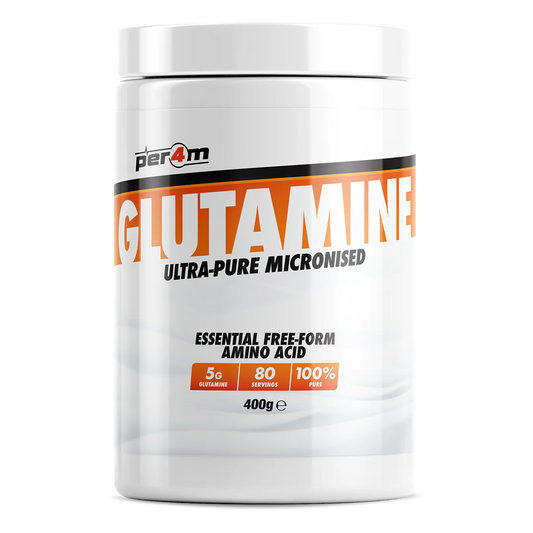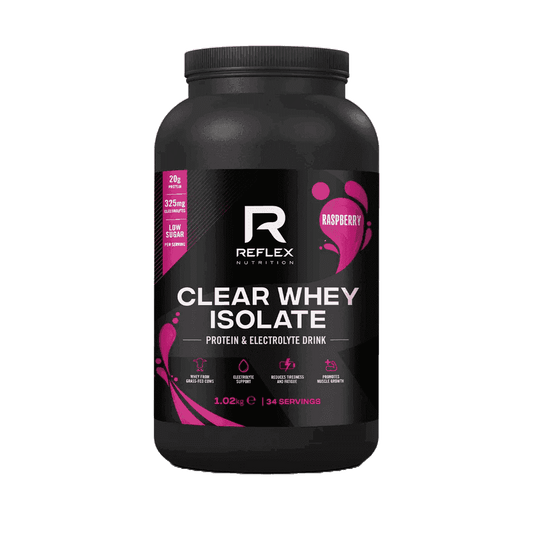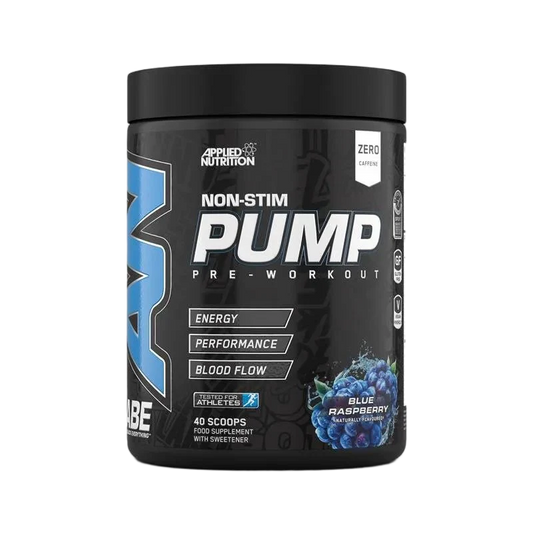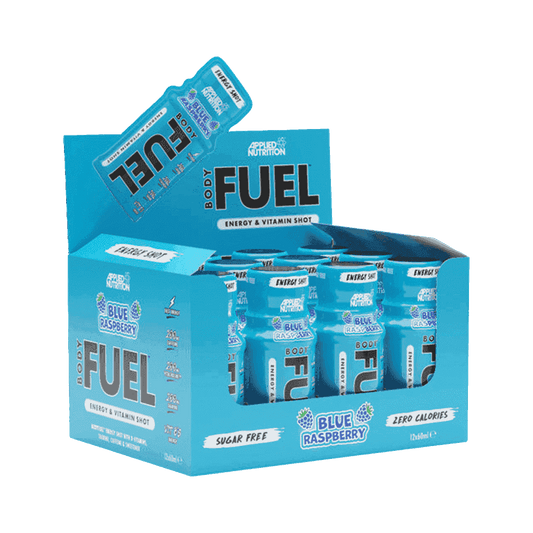Introduction: More Than Just a Mirror Trick?
Few things in the gym feel as satisfying as “the pump” — that tight, swollen sensation that makes your muscles look bigger and veins more defined. But while the mirror effect is obvious, serious lifters want to know if pump supplements go beyond appearance. Do they really improve performance, or are they just another shiny tub in your stack?
The answer lies in understanding how they work, and how they stack with other proven supplements in your routine.
1) Is a Pump Supplement Worth It?
The pump itself is caused by increased blood flow to working muscles. Pump supplements amplify this natural effect by boosting nitric oxide levels, which relaxes blood vessels and drives more nutrients and oxygen to your muscles mid‑set.
That extra blood flow isn’t just about looks — it supports endurance, nutrient delivery, and even faster recovery. For gym‑goers who want more out of every rep, a pump product can be a valuable addition.
💡 Many lifters pair pump products with Naughty Boy Prime Creatine, ensuring both immediate vascularity and long‑term strength gains.

2) What Is the Best Pump Supplement?
The “best” pump supplement depends on your training style. Stim‑free pump formulas are perfect for evening sessions, while those training earlier in the day may stack pumps with caffeinated pre‑workouts.
Look for high doses of L‑Citrulline for nitric oxide production, plus hydration ingredients like electrolytes. Together, they fuel both the look and the performance.
💡 Applied Nutrition ABE Pump – Non‑Stim is a strong choice here, giving you the pump without the jitters — ideal for late‑night training.
3) Which Supplement Gives You the Best Pump?
While nitric oxide boosters provide the vascularity, stacking them with creatine and hydration support is what takes pumps from good to great. Creatine pulls water into muscle cells, while hydration aids keep endurance high and pumps lasting longer.
💡 EHP Labs Hydreau is a prime example — an electrolyte drink that supports hydration so your pump doesn’t fade halfway through a session. Pairing it with Naughty Boy Prime Creatine makes for a proven one‑two punch.

4) How Do Pump Supplements Work?
Pump supplements work by increasing nitric oxide, which widens blood vessels and improves circulation. This means more oxygen and nutrients delivered to your muscles, giving you that fuller look while fuelling performance.
The real advantage is consistency: instead of occasional good pumps, nitric oxide boosters help you feel fuller and more energised every session.
💡 For muscle repair to match the pump, many gym‑goers turn to Reflex Clear Whey Isolate. Its light digestion makes it the perfect follow‑up to a pump‑focused session, ensuring the nutrients your muscles need don’t go to waste.

5) How Long Does the Pump Effect Last?
Most lifters report pumps lasting 2–3 hours after training. With consistent supplementation and hydration, muscles can even appear fuller throughout the day. The key is stacking the right products so your pump isn’t just a fleeting mirror moment.
💡 Per4m Glutamine 400g is another strong addition here, helping to support muscle recovery while keeping your pump and endurance steady long after your workout ends.
📌 And that’s the end of Part 1…
🔜 In Part 2, we’ll cover:
-
How long it takes for pump supplements to kick in
-
Pump vs regular pre‑workout
-
Does creatine give you better pumps?
-
How to get a pump without supplements
-
FAQ’s
6) How Long Does It Take for Pump Supplements to Kick In?
Most pump supplements take 20 to 40 minutes to kick in — timing depends on whether you’ve eaten and the form of the product. Powders like Applied Nutrition ABE Pump typically act faster on an empty stomach, while capsules may take slightly longer.
What you’re really waiting for is blood vessel dilation — and once it begins, it’s noticeable. A tight chest after bench, a forearm swell after rows, the kind of fullness that makes you want to chase just one more set.
That’s also why timing matters. Taking your pump too early before training can mean it peaks while you’re still warming up. Aim to take it right before you begin your first working set.

7) What’s the Difference Between Pre‑Workout and Pump Supplements?
This is a big one — not all pre‑workouts are pump supplements, and not all pump supplements are pre‑workouts.
Most standard pre‑workouts focus on stimulants (like caffeine) to increase focus and drive. Pump supplements, by contrast, aim to increase blood flow, not necessarily energy levels.
Many people stack both:
-
Applied Nutrition Body Fuel Shots for mental intensity
-
ABE Pump for muscle fullness
But for those who train in the evening or are caffeine-sensitive, non-stim pump formulas are the perfect alternative to traditional pre-workouts — giving you performance benefits without keeping you up at night.
8) Does Creatine Give You Better Pumps?
Surprisingly, yes — creatine contributes to fuller muscles by drawing water into your cells. While it doesn't increase nitric oxide directly, it enhances cell volume, which supports better pumps and muscle recovery.
When combined with nitric oxide boosters, it’s a synergy. One improves blood flow, the other improves hydration and cell volume. That’s why so many lifters pair Naughty Boy Prime Creatine with pump products — it makes each set feel more productive.

9) Can You Get a Good Pump Without Supplements?
Absolutely — the body is designed to pump blood to working muscles naturally. You can maximise your pump through:
-
Slow, controlled tempo
-
Higher rep ranges (10–15+)
-
Shorter rest periods
-
Full range of motion
But supplements elevate your natural potential. They make great sessions more consistent, and turn good workouts into exceptional ones.
They’re not a shortcut — they’re a smart enhancement.
💡 Tip: Try sipping EHP Labs Hydreau between sets for intra-workout hydration and improved pump retention — especially on longer sessions.
Conclusion: Are Pump Supplements Just for the Look?
The short answer? No — they go deeper than vanity.
Yes, pump supplements make you look fuller. But their real value is in performance: more blood flow, better hydration, improved nutrient delivery, and that addictive feeling of a great session.
For bodybuilders, powerlifters, and casual lifters alike — the pump isn't just a bonus. It's feedback from your body that you're doing something right.
Used wisely, pump supplements can elevate your training, recovery, and results.

🧠 FAQ: Pump Supplements — Hype or Help?
1. Do pump supplements actually help strength?
Yes — better blood flow improves oxygen and nutrient delivery, which supports endurance and muscular output.
2. Are pump pre‑workouts better for bodybuilding?
They're popular in bodybuilding because of how they increase muscle fullness and definition — both helpful in training and on stage.
3. Do pump products last after the gym?
The visual pump typically fades within 2–3 hours, but the benefits to recovery and performance last much longer.
4. What ingredients make pump supplements work?
Look for L‑Citrulline, Nitrosigine, nitrates, and glycerol — these drive nitric oxide production and cell hydration.
5. Can you combine pump and stim pre‑workouts?
Yes, many people stack both — just be cautious of total ingredient load to avoid digestive upset.
6. Do pump products work without creatine?
Yes, but creatine enhances the effect, especially by increasing cell volume and hydration.
7. Is the pump bad for your heart or blood pressure?
For most healthy users, no. But if you have cardiovascular conditions, always consult a healthcare professional before using nitric oxide boosters.





